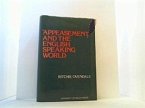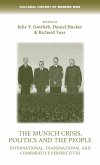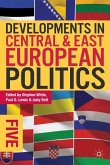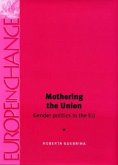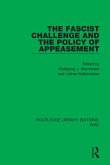A Choice Outstanding Academic Title for 2002 Since the 1930s, appeasement has been labeled as a futile and possibly dangerous policy. In this landmark study, Stephen Rock seeks to restore appeasement to its proper place as a legitimate--and potentially successful--diplomatic strategy. Appeasement was discredited by Neville Chamberlain's disastrous attempt to satisfy Adolf Hitler's territorial ambitions and avoid war in 1938. Rock argues, however, that there is very little evidence to support the belief that dissatisfied states and their leaders cannot be appeased or that appeasement undermines a state's credibility in later attempts at deterrence. Rock looks at five case studies from the past 100 years, revealing under what conditions appeasement can achieve its goals. From British appeasement of the United States near the beginning of the twentieth century to American conciliation of North Korea in the early 1990s, Rock concludes that appeasement succeeds or fails depending on the nature of the adversary, the nature of the inducements used on the antagonist, and the existence of other incentives for the adversary to acquiesce. Appeasement in International Politics suggests the type of appeasement strategy most appropriate for various situations. The options range from pure inducements, reciprocity, to a mixture of inducements and threats. In addition to this theoretical framework, Rock's explicit comparison of appeasement and deterrence offers important guidelines for policymakers on when and how to implement a strategy of appeasement. At a time when the strategy of engagement plays an increasingly central--and controversial--role in U.S. foreign policy, Appeasement in International Politics reestablishes the long-discredited use of inducements as an effective means of preventing conflict.


